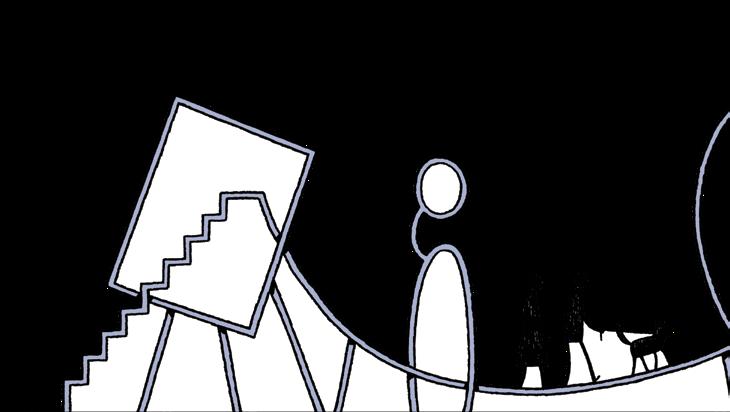
5 minute read
Family Business: An Intimate History of John Lewis and the Partnership, by Victoria
capable of the most poisonous bigotry. During the Dreyfus affair, almost the entire British press was united in indignation at such a flagrant injustice – except Belloc, on the grounds that Dreyfus was Jewish and must therefore be involved in an international conspiracy. When stories began to emerge about Belgian atrocities in the Congo, Belloc alone sided with King Leopold II: after all, the King was Catholic – so the coverage had to be unfair.
On the other hand, Belloc declared war on the chocolate magnate George Cadbury, a kindly philanthropist who campaigned for social reform, treated his workers with exceptional gentleness and respect, and bankrolled the Daily News, Chesterton’s employer. Cadbury was a Quaker, you see, and therefore – Belloc concluded – motivated solely by greed and moral puritanism.
Advertisement
Belloc managed to bewitch not only Chesterton’s journalist brother, Cecil, who became a full-time acolyte, but G K himself. Chesterton changed his view on the Dreyfus case, from outrage to feeble both-sides-ism. He hysterically denounced Cadbury, which meant leaving the Daily News. And he abandoned some of his oldest friends in public life when Belloc began including them in his conspiracy theories.
Next, Belloc and Cecil plunged into the Marconi affair – a genuine scandal, where government ministers engaged in insider trading. Yet the pair somehow managed to commit (and be convicted of) libel, by inventing a Jewish plot between the main actors. Chesterton regarded this embarrassing episode as a moral triumph for his friends, not to mention ‘one of the turning points in the whole history of England and the world’.
As Ingrams shows, Chesterton’s loyalty to Belloc and Cecil defined a good deal of his political engagement. It led him to look sympathetically on antisemitism. As editor of the New Witness, he published – and later defended – a grotesquely hate-filled diatribe penned by Cecil’s wife. It led him, after Cecil’s death, to devote much of his energy to keeping alive his brother’s old paper. And it led him to adopt a variety of strange positions – opposing National Insurance, downplaying Mussolini’s crimes – which intruded a permanent element of confusion into his otherwise lucid prose. Sometimes more than confusion: Ingrams has found sentences in the Autobiography that actively distort the historical record.
The Sins of GK Chesterton is no hatchet job: it takes for granted that Chesterton was, for the most part, a man of profound integrity. Precisely because Chesterton loved truth, Ingrams speculates, ignoring it caused him tremendous, unconscious stress; hence his near-fatal breakdown in 1914, and his final illness in 1936. For Ingrams, the whole story is a ‘heroic tragedy’.
The Devil can turn even our virtues against us – and, in Chesterton, humility was sometimes twisted into something very different: an absurdly low estimation of his own gifts, combined with deluded hero-worship of other people’s. If Chesterton had realised that his own mind was far mightier than Belloc’s and Cecil’s put together, perhaps he would not have wasted so much effort on their pet causes.
What does intellectual humility mean? As with a thousand other things, Chesterton himself put it best: ‘A man who really has a head with brains in it ought to know that this head has been gratuitously clapped on top of him like a new hat. A man who by genius can make masterpieces ought to know that he cannot make genius.’
Chesterton’s fans have sometimes assumed that such beautiful books could have been written only by a saint. The author knew better. In that sense, refusing to canonise him is its own kind of tribute. Britain’s corner shop
VALERIE GROVE Family Business: An Intimate History of John Lewis and the Partnership By Victoria Glendinning William Collins £20
It already feels like a world ago that I last wandered through the haberdashery section of John Lewis, confident that one would never be knowingly undersold.
The nation’s favourite department store is now in limbo. Its CEO, Dame
‘I don’t know, really – I suppose I just expected more from heaven’ Sharon White, is closing stores and moving into the property sector, building 10,000 rentable homes. So Victoria Glendinning’s ‘intimate history’, inspired by a moment of curiosity under Barbara Hepworth’s Winged Figure in Oxford Street, could hardly be more timely.
Behind every great Victorian store stood a diligent, thrifty young man (named Harrod, Heal, Liberty, Gamage, Whiteley, etc) at a high-street counter.
The original John Lewis, born in 1836, was apprenticed to a draper in Shepton Mallet, Somerset. Glendinning lived nearby – so her narrative is laced with an occasional dig at the ‘1970s architectural statements gifted to the town by the Showering family of Babycham fame’.
John Lewis grew up to be cultivated (opera, theatre, Lord Byron) and steadfast. His first sweetheart, Nelly Breeks from Cumbria, was too good for him (the Breeks family thought) but he never forgot her, and built her memorial, even though she had ended her days in Mrs Theobald’s House for Inebriates.
Lewis paid promptly and banked every penny. He did not advertise (quality and service spoke for themselves) and went to prison rather than succumb to his landlord Howard de Walden over the restoration of his side of Cavendish Square. When a fellow draper, Peter Jones, died, having just lit his grand shop with electricity, John Lewis strode along to Sloane Square with £20,000 in his pocket and snapped it up.
He married the daughter of another Somerset draper, a Girton girl who opted for motherhood and was crushed by it.
They bought Branch Hill Lodge, Hampstead, and renamed it Spedan Tower – apparently after a kindly aunt, Ann Speed – and gave their first son the same peculiar name. John Spedan Lewis and his brother, Oswald, both tall and handsome, went to Westminster School and were destined to tussle with their ageing father – who lived to be 92 – over boardroom matters.
The hero of the story is Spedan, who threw his energy into the shop’s unique selling point – the paternalistic notion of ‘partnership’. After William Whiteley was shot dead in his shop in 1907, leaving £1m in his will to provide retirement homes for his staff, the Lewis brothers decided to create a country club for their senior salespeople.
Spedan had read William Morris and perceived that if shop workers were happy and exuded cheerfulness, they would be more productive.
‘This was and remains obvious,’ as Glendinning says. Hence those smiling, helpful assistants.











